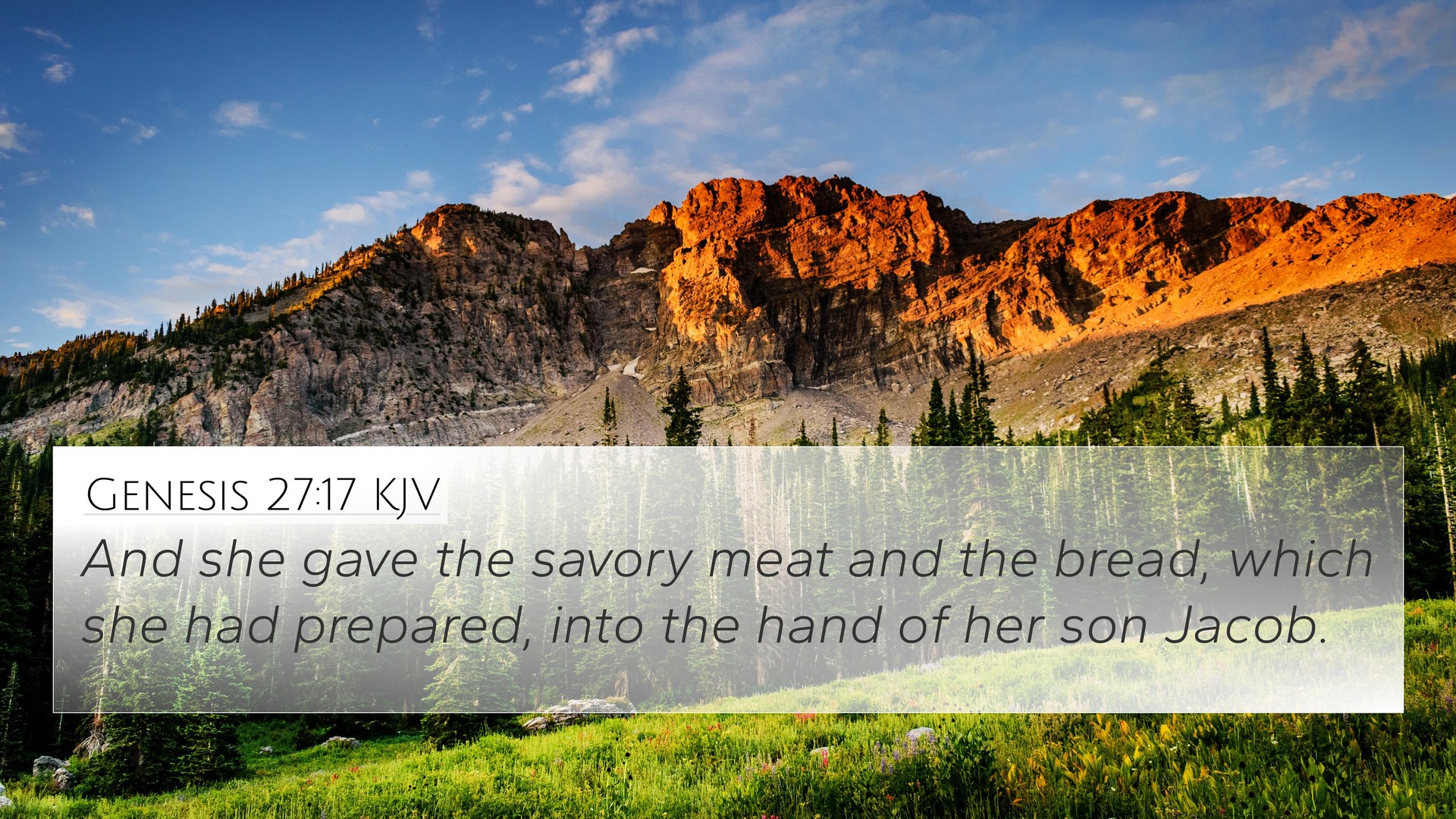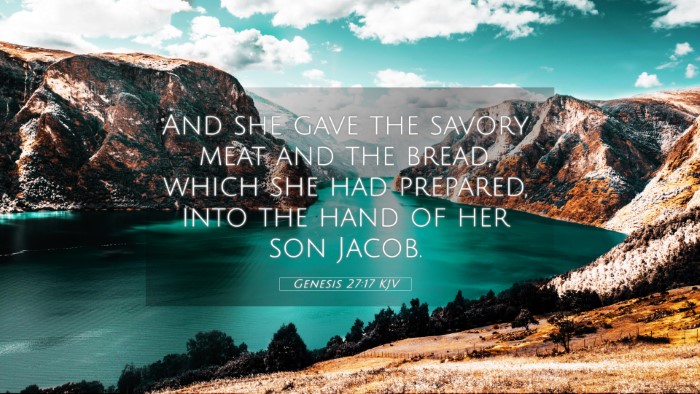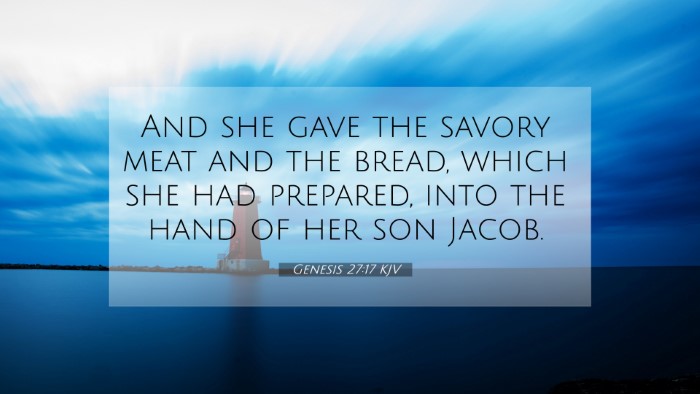Understanding Genesis 27:17
Genesis 27:17 states, "And she gave the savory meat and the bread, which she had prepared, into the hand of her son Jacob." This verse is deeply embedded in the narrative of Isaac, Rebekah, and their sons, Esau and Jacob, highlighting themes of deception, family dynamics, and the fulfillment of God’s promise.
Verse Context
This verse occurs during a pivotal moment in the story where Rebekah, acting on divine revelation, orchestrates a plan for Jacob to receive Isaac's blessing intended for Esau. This event plays a crucial role in the larger narrative of the patriarchs.
Insights from Commentaries
- Matthew Henry: Henry emphasizes that Rebekah’s actions, while seemingly cunning, were rooted in God’s earlier revelation that the elder would serve the younger (Genesis 25:23). His commentary points out the moral complexities and questionable ethics involved but acknowledges that God's sovereign will was ultimately at work.
- Albert Barnes: Barnes notes the significance of the blessing in ancient Hebrew culture and highlights Rebekah's decisiveness in ensuring Jacob received the blessing. He raises questions about the righteousness of her deception, illustrating the tension between divine sovereignty and human action.
- Adam Clarke: Clarke explains the cultural context of blessings and the roles of sons in familial settings. He discusses the implications of Rebekah’s choices and how they reflect the difficulties of parenting and the challenge of aligning with divine plans amidst human frailties.
Bible Cross-References Related to Genesis 27:17
This verse can be cross-referenced with several other scriptures to uncover deeper meanings:
- Genesis 25:23: God's prophecy about the relationship between Jacob and Esau.
- Genesis 27:1-4: The background of Isaac’s intention to bless Esau.
- Genesis 26:34-35: The tension in Isaac and Rebekah's family, establishing the need for Jacob’s deception.
- Romans 9:10-13: Apostle Paul's discussion on God's election, citing Jacob and Esau.
- Hebrews 11:20: Mention of Isaac’s blessing in the context of faith.
- 1 Peter 3:1: The themes of submission and influence within family relationships, reflecting Rebekah’s role.
- Genesis 12:1-3: The foundational promise to Abraham that underlies the events involving Isaac and his sons.
Thematic Connections
Connections among these verses reveal key biblical themes:
- Divine Sovereignty: The overarching plan of God, as illustrated in Genesis 25:23 and Romans 9:10-13.
- Family Dynamics: The complex relationships and ethical dilemmas faced by the patriarchs can be further understood through 1 Peter 3:1, which speaks to familial influence.
- Faith and Obedience: The blessing scene captures the essence of faith, as noted in Hebrews 11:20.
Cross-Referencing Tools and Methods
When studying scriptures such as Genesis 27:17, utilizing tools for Bible cross-referencing enhances understanding:
- Bible Concordance: A helpful resource for finding verses related to specific words or themes.
- Bible Cross-Reference Guide: Various guides are available to assist in locating connections between scriptures.
- Cross-Referencing Bible Study Methods: Engaging in comparative studies can illuminate the interconnections between Old and New Testament themes.
- Bible Chain References: Following thematic chains across passages can uncover deeper theological insights.
Identifying Connections
Seeking out how Genesis 27:17 connects with other biblical narratives presents an opportunity for meaningful exploration. Key routes include:
- Genesis 12-50: Tracing the saga of Abrahamic promises through the ensuing generations.
- New Testament Comparisons: The principles of deception and blessing are further explored in the Gospels and epistles.
User Intent and Related Questions
For those seeking answers regarding this verse, consider the following:
- What verses are related to Genesis 27:17?
- Find cross-references for Jacob's blessing narrative.
- How do Genesis 27:17 and Romans 9:10-13 connect?
- Similarities between Jacob's and Esau's parental dynamics in Genesis?
- Bible verses that support the theme of divine election in the Jacob and Esau story.
Conclusion
In studying Genesis 27:17, we uncover a profound interplay of human actions and divine will, offering rich material for serious biblical study. Engaging in comparative analysis not only enhances our understanding but also invites deeper reflection on the nature of faith, family, and God’s sovereign designs throughout scripture.


